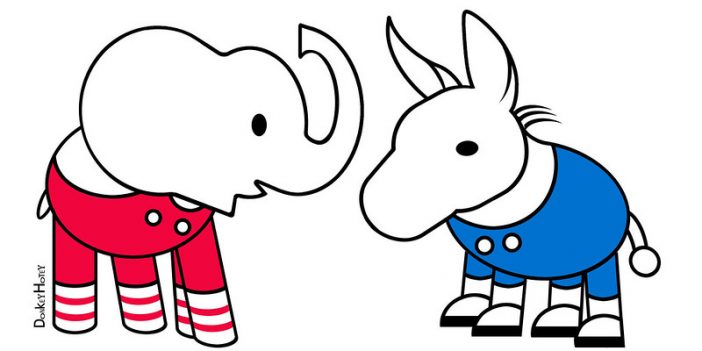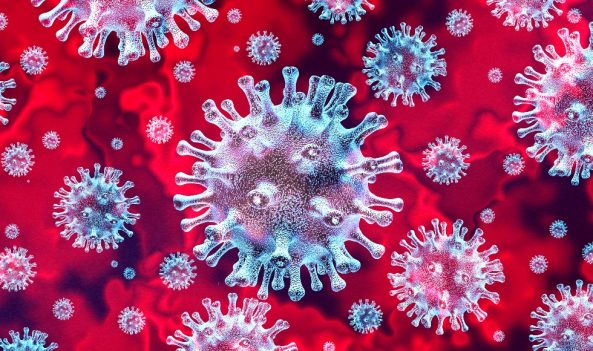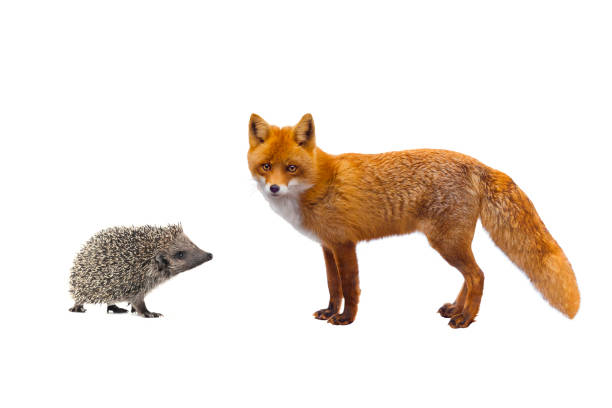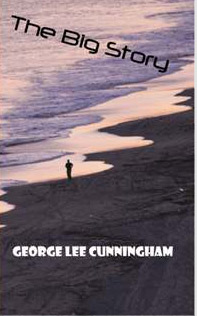FEATURED POSTS
-
April 10, 2020
COOL TODAY, NOT TOMORROW

DIFFERENCE OF OPINION – Photo by DonkeyHotey on Foter.com / CC BY
Times change. The attitudes and technology of the recent past may look positively antiquated today, but time marches without mercy to the attitudes and fashions of our day. What is cutting edge today will seem positively silly to future generations. Here are my 10 predictions for the future:
ONE: People will become more tolerant of other people’s political difference. I know this is a radical idea, but maybe folks will begin to realize that we all have more in common than that which separates us into warring camps. This is already more apparent in the real world than on Facebook or in the Twittersphere, where people gather to share their outrage and insult anybody who dares disagree. It’s both boring and depressing. I could be wrong, but what’s the alternative? Civil War? It happened once before with tragic results for both sides. Let’s try to avoid it this time around.
TWO: People getting tattoos will become fewer in the years to come. Fashions come and go. Few people today are wearing their hair as they did in the 70s or wearing the same clothes. That’s because times change and people change with the times. Tattoos may fade and grow fuzzy over the years, but they or the dermabrasion scars to remove them are there forever.
THREE: Buffet restaurants will become No. 1 on the hit list of popular institutions. This one is extremely tough for me, but in a post-epidemic world, everybody dipping into the same French dressing tub and scooping up big globs of Joan’s Broccoli Madness with a common spoon is not going to be as popular as it once was – despite the presence of the much touted sneeze guard.
FOUR: Multiple remote controls for everything will end. It must. Currently we have two remote controls for the television – one from the cable company for changing channels. The other, which was included with the flat screen TV, we use to raise or lower the volume. I have to use the remote that came with the TV if I want to stream movies on Amazon, Netflix, BritBox or other pay channels.
Now I’m sure that I could integrate both TV remotes into one, but it would take hours to figure out and at the end I might not be able to access anything at all. The only good part is that my wife is even more frustrated than I am, so when she wants to change channels or watch something new, she has to rely on me – the man.
It’s the same thing with all my other remotes. One for the light and overhead fan in the living room, one for the bedroom, and if I were more technically sophisticated, I’d get an app on my phone so I could see who was ringing my doorbell, even if I was miles away.
I’m positive that our techie friends will solve this problem – they probably already have – and in the near future it will finally seep down to the folks on the ground. The one drawback, I suspect, is that they will also be able to tell when we turn on the lights, when we are home, and where we’ve gone when we’re not at home.
FIVE: One of the benefits to evolve from the current epidemic will be working electronically from home. There will be fewer reasons for office workers to get in cars and drive many miles in stop-and-go traffic in order to get to work. Fellow office workers will communicate electronically, each from their own home office area. There will be times to personally meet with one another, but these will be infrequent. People who work in retail or in service industries – beauticians, construction workers, plumbers, and restaurant folks – will still drive to work, but the giant traffic jams will ease.
Going to the store to shop for goods is already being impacted by the ease of Amazon, Instacart, and other internet shopping sites that deliver goods to our doorsteps within hours or days. With less commuting and less on-site shopping, there will be fewer reasons for brick-and-mortar stores and other businesses to maintain huge parking lots for their customers and employees and less need to build huge office buildings when most of the employees are working from home.
SIX: Family life will be enhanced or perhaps in some cases curtailed. With commuting to work a lesser factor, people will be able to spend more time at home. Hopefully what they will rediscover is the joy of family time. Or perhaps once folks begin spending more hours with their mates, they may find that whatever magic existed when they joined together has long since disappeared. The current epidemic is already bringing some of those feelings to the forefront.
SEVEN: The 40-hour work week may become less of a standard than it currently is. Freed from the wage-slave structure of going to the job every day, some folks will join the so-called “gig-economy” and work more or fewer hours as they desire at more than one job. When I was a boy, people usually worked a five-and-a-half day week. They would get off at noon on Saturday and have a half-day to go shopping and spend time with the family. Sundays were for church, and most stores would close down. The standard work week has ever since been stuck at 40 hours with stores staying open seven days a week. With more automation and fewer demands for employees, perhaps it will be time to restructure work to be a lesser part of everyday life.
EIGHT: Education is already changing, and it will soon change forever. Student loans – a government-backed scam by universities and banks – has left a generation of students in a state of perpetual bonded servitude after they graduate with a degree in fashion design or women’s studies and end up working at jobs next to debt-free high-school grads. Professors meanwhile are awarded tenure, which ensures them job security even if they turn out to be arrogant miscreants.
With some exceptions, secondary school curriculum – dominated by social activists and union educators – is almost as bad. Text books are written to be politically correct, if historically flawed. The basic skills, such as math, reading, and grammar, have been so diminished that students are getting high school degrees even though they may be functionally illiterate.
With education moving online, there is little reason for lecture halls full of bored students listening to bored professors drone on over materials that they have regurgitated scores of times before. If students are interested in the subject, they will be able to take it online from a top professor of their choice.
What’s happening already in the elementary schools is that an increasing number of parents are discovering the benefits of educating their children at home and passing along the values and attitudes that reflect their own. With more kids staying home from school the face of education can be expected to change greatly over the next few years.
NINE: Privacy is already a quirk of the past – neither expected nor respected by coming generations. People post their most intimate thoughts and emotions on the internet to share with the world. Cash transactions are rapidly becoming an artifact of the past. People use credit cards, debit cards, and internet accounts to purchase most of their everyday goods. That means there is an economic record of how they spend their money and what they spend it on residing in the database of large corporations and potentially accessible by the government.
TEN: The freedoms that Americans once took for granted have been under attack for decades. The computerization of information and the political need to control large populations are bound to lead to a further erosion of people’s ability to decide their own paths. There are already politicians choosing to place high taxes on large sodas and cigarette sales in order to engineer social health and attitudes. In China, people are granted “freedom” by the government if they exhibit government-approved attitudes and don’t make trouble. If they are trouble makers, they and their families may have to live with restricted rights. It is unfortunately seen as a model by our own ruling class.
Those are my predictions. I could be wrong. In fact, I hope I am wrong about some of them. So what do you think? Is the future going to be grim or rosy?
Or maybe somewhere in-between.
Do you have an opinion on the subject? Contact me at george@georgeleecunningham.com and let me know. Meanwhile, you can always subscribe and get an email reminder of blog postings. Your name will not be shared and you may cancel at any time.
-
March 24, 2020
MOTHER NATURE IS A BITCH

NOT OUR PAL — Picture by Mysty Baker inworld on Foter.com / CC BY
Everybody thinks of Mother Nature as this wonderful symbol of sunshine and flowers, and she truly is that. But there’s another side to Mother Nature. She is also a pragmatic and remorseless bitch.
Her job is to keep things in balance.
It isn’t always spring time and summer, when the grass is thick and tall and the days are long and lazy. There are the fall and the winter, when the grass turns brown, the trees lose their leaves, the young and sickly die, and the old and lame starve.
It’s all part of nature’s plan.
Humans tend to overlook that dark side of Mother Nature because they are locked up all snug and warm, sitting in front of a blazing fire reading a book or laid back on the couch watching the big game on TV. Nobody at the top of the food chain is thinking about all the cold and hungry creatures shivering out in the rain and the snow.
Because of our big brains, opposable thumbs, and gift of language, we have become immune to annual nature balancing devices such as winter. So our population keeps growing and growing and growing.
Thomas Robert Malthus warned back in 1798 that when times are good and food abundant, people tend to have more children. The more people there are, the less food available per person, leading ultimately to sickness and famine when food production falls.
Human nature drives people to have multiple babies rather than live within the limits of the planet.
Some people point to the world today as proof that Malthus’ theory was incorrect.
The human population of the world has exploded – especially during the past century –because of better agricultural practices and the conquering of diseases that used to kill the lame and the weak. But there are still limits.
In addition to being creatures that are driven to reproduce, we are also warlike in our manner. We didn’t get to the top of the food chain by being nice guys.
And with modern technology, we are ever more efficient in eliminating people with whom we disagree. The massacre of ethnic minorities in Africa and Asia; the extermination of Jews, other minorities, and dissidents in Germany, Russia, China, and Asia; the aerial bombing of entire cities that killed millions of civilians.
And yet, scientists keep finding ways to keep us alive despite our baser nature. They are out on the front lines, tracking down diseases and developing new medical defenses as microbes evolve immunities to current medications.
That’s when Mother Nature strikes again. Those microbes are some of her creatures too. And sometimes they win.
Meanwhile, try not to be a victim of Mother Nature. This is the time for everybody to hunker down and take care of each other. We all need to take advantage of our big brains. Even if you’re weak, try not to be stupid.
Mother Nature doesn’t like stupid.
Do you have an opinion on the subject? Contact me at george@georgeleecunningham.com and let me know. Meanwhile, you can always subscribe and get an email reminder of blog postings. Your name will not be shared and you may cancel at any time.
-
March 17, 2020
A CHANCE TO CHANGE YOUR PATH

A VIRAL OPPORTUNITY
So here you are. The business where you work has been shut down for an extended period by the Corona Virus and you’re stuck at home drinking Corona Beer and waiting an unspecified time for the “all clear” that will allow you to resume your life.
You watch old reruns on TV or endless movies on Netflix and Amazon. You read trashy books and listen to music. You go online to text and call friends and commiserate about your forced timeout from life.
Which is exactly what almost everybody else in your circumstance is going to be doing.
But there is another choice. This is also a time when you can sit down, maybe with a pad and a pencil, and figure out exactly what you want for the rest of your life.
I was a business reporter at a newspaper years ago, and on at least three occasions I interviewed successful businessmen with similar stories. Their big break came when they lost their jobs because of downsizing, or contracts ending, or the company they worked for going bankrupt.
The bad thing turned into an opportunity because it gave them a chance to step back, examine what they were doing in life, and go forward in another direction. In every case it took planning and research and guts to do what they did, but it made their lives better.
I understand that it doesn’t always work out that way. Sometimes people try something new and fall flat on their face. But at least they tried.
You’re stuck at home anyway. It’s either an opportunity or a hardship.
The choice is yours.
Do you have an opinion on the subject? Contact me at george@georgeleecunningham.com and let me know. Meanwhile, you can always subscribe and get an email reminder of blog postings. Your name will not be shared and you may cancel at any time.
-
March 6, 2020
ARE YOU A HEDGEHOG OR A FOX?

HEDGEHOG OR FOX
Are you a hedgehog or are you a fox? How about Donald Trump, Bernie Sanders, Barack Obama, or Hillary Clinton? How about your pals? Or your mate?
Philosopher-professor Isaiah Berlin came up with the Hedgehog-Fox concept among friends in the late 1930s, before using it in lectures and essays in the early 1950s. According to the theory, a hedgehog believes in one big truth that governs life and the world, while a fox believes in many smaller truths.
A hedgehog would be someone who will do whatever is necessary to force others into his or her idea of the one big truth. Examples might include Hitler, Stalin, and Mao. A fox would be someone who believes in many smaller truths – some of which may be contradictory and self-serving, according to the given circumstance. Perhaps folks such as Al Capone, Harvey Weinstein, or Casey Anthony.
In real life, foxes believe that the world is too complex to know everything; hedgehogs are on a quest for the one elusive truth that explains it all.
It should come as no surprise that foxes tend to be happier than hedgehogs.
Like most such antonymic comparisons – winners and losers, givers and takers, heroes and cowards – the hedgehog and fox comparison can be valuable as a broad way of looking at people and understanding them. Pushed to the limits, however, it quickly breaks down, something that Berlin was quick to acknowledge.
“For there exists a great chasm between those, on one side, who relate everything to a single central vision, one system, less or more coherent or articulate … and, on the other side, those who pursue many ends, often unrelated and even contradictory … related to no moral or aesthetic principle,” Berlin wrote.
That’s because few people are pure hedgehogs or pure foxes. Most of us, fortunately, fall somewhere in between.
The majority of us probably consider ourselves more fox-like than hedgehog. There are only a few of us who go all the way to hedgehogism – although you do find such people on the left and right political extremes.
For instance, I am suspicious of big government. I see government as a necessary evil. But deciding how people should live, what they should eat or drink, and who they may or may not marry should not be the government’s business.
It’s not that big business or big unions can’t be corrupt. They often are. But private organizations have limits that the government does not. The purpose of private business or unions is to provide goods and services and to make money or provide benefits for their stockholders or members. If they fail to do that, sooner or later they go out of business, and some other organization takes their place.
Big government, on the other hand, can continue to raise taxes and throw money at problems to see what may or may not work. Once a new agency is established to solve a problem, it’s almost impossible to get rid of that agency or its people, even if it fails to fulfill its purpose. And with all that money flying around, it’s inevitable that some folks along the line are going to siphon off some for themselves.
However, we do need government agencies to check and make sure that the T-bone we’ve just bought is not riddled with e-coli, that the children of drug-addicted parents have enough to eat and a chance at a better life, and that factories and other businesses aren’t disposing of their toxic junk into rivers or letting it leach down to the water table.
For most of us, it’s merely a question of where you draw the line – whether you err on the side of the fox or the hedgehog.
The world is not fair. It’s never going to be fair. But it can be better, and that’s what we all should work toward. Whether we lean toward the foxes or the hedgehogs, we need to find solutions.
The foxes and the hedgehogs, together.
Do you have an opinion on the subject? Contact me at george@georgeleecunningham.com and let me know. Meanwhile, you can always subscribe and get an email reminder of blog postings. Your name will not be shared and you may cancel at any time.
-
December 23, 2019
2020 VISION
 2020 VISION is a book of 12-poems – one for each month of the year – by George Lee Cunningham. The poems are about the joy of life, the state of the world, getting older, and coming to terms with your own humanity. You can get a PDF copy of the poems by clicking HERE.
2020 VISION is a book of 12-poems – one for each month of the year – by George Lee Cunningham. The poems are about the joy of life, the state of the world, getting older, and coming to terms with your own humanity. You can get a PDF copy of the poems by clicking HERE.






